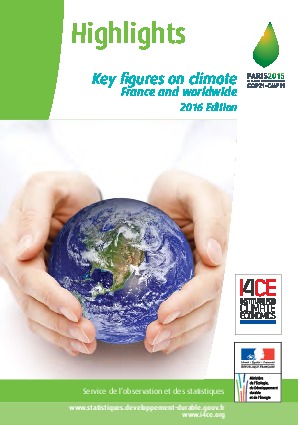Highlights – Key Figures on Climate France and Worldwide 2016 Edition
In line with previous years, but with a sharper focus that the issue deserves, the 2016 edition of “Key figures on climate” has been written in the context of the 21st Conference of the Parties on Climate Change (COP 21) to be held in Paris from 30 November to 11 December 2015.
This latest version has been updated and expanded relative to the 2015 edition. The sector-based analysis of GHG emissions has thus been supplemented by a double page on agriculture and emissions from Land Use, Land Use Change and Forestry (LULUCF). A page
on carbon pricing around the world has been added. Some pages devoted to global data have also been spread across two to make them easier to read.
However, 2013 data for GHG emissions at the international level are not yet available. Unlike past years, this data will be made available by the European Environment Agency (EEA) later in the year.
This publication, through its structure and choice of topics, aims to inform as wide a readership as possible about climate change, its mechanisms, causes and effects, as well as the international schemes that have been established to limit them.
In addition to this paper edition, a smartphone application StatClimat was developed. It presents the main key figures on climate change in France and worldwide.
